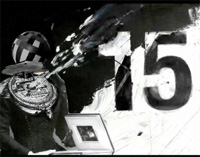i'm wealthy. obviously. i think of myself as incredibly lucky and i pay all my tax. it seems pretty obvious to me that's what any self-respecting person should do. so i'd be quite happy to see rich people who evade and avoid tax publicly flogged, alongside the wealthy directors of corporations who do the same, particularly at a time when the government is slashing public services. or indeed at any time. jesus, i mean how do you justify the fourth home in martinique when people are dying of starvation? come to think of it why don't we flog leading members of the coalition too, given that they have actually made it easier for those people and corporations to avoid tax by cutting funding to the already underfunded h m revenue and customs, then stuck two fingers up at the rest of the country by employing philip green as a government advisor...
This blog is in a state of suspended animation
I am much more active on twitter (@mark_haddon) and on instagram (@mjphaddon)
thoroughly enjoyable schadenfreude over the embassy cable revelations. none of the so-called secrets that i've read about so far have really been secrets at all, just confirmations of what most people already knew if they read far enough into a decent newspaper (members of the afghan government are siphoning millions of dollars out of the country, prince andrew is a loose canon who'd prefer the government not to investigate overseas business fraud, berlusconi is taking kickbacks from putin… this looks like a herd of bears crapping in the woods to me). the big exception so far seems to be the directive to us diplomats to steal private information from political figures at the un and elsewhere, including passwords and 'biometric information', surely for the purpose of accessing private accounts, communications and databases, and i really do think the victims of this kind of thing need to know about it.
so far i can't see how anyone has been hurt as a result of the revelations (i think it is more likely that lives will be saved), except perhaps hilary clinton who is making an arse of herself trying to wriggle out of responsibility for having signed the above un spying directives, possibly with her left hand while thinking about something else. it's also interesting watching other members of the obama administration affecting a tactical outrage which is slowly fading to weary acceptance because they know, clearly, that no great harm has been done, since everyone in the circles of power knew these things already and in certain cases - china losing patience with north korea for example - wider dissemination has probably given them more leverage.
ironies abound. e.g. joe lieberman forcing the shutdown of the wikileaks website as if utterly blind to the words google and china free speech. ior indeed that many people - republicans mostly - are calling for julian assange to be, if not quite eaten by dogs on live tv, then prosecuted, presumably under the antique espionage act of 1917 while susan rice is hiding in a toilet cubicle ten floors above east 42nd street trying to get a clandestine urine sample from ban ki moon.
trawling through an encyclopaedia of c.1939 for red house stuff i stumbled on this extraordinary vehicle of which i had never heard before. it was real, it was built and ran in glasgow in the mid 30's and carried people, albeit for just over a hundred yards before its inventor went bankrupt halting any further development.
http://www.gearwheelsmag.co.uk/archive/the_bennie_railplane_feature_13.htm
curious incident has been chosen as one of the 25 titles that will make up the million books to be given away on world book night january. the whole idea is rather brilliant, not least because it seems fabulously crazy. best of all it's about reading not just as a magical private experience but as a communal one. giving books, sharing books, talking about books. doing something else instead of watching i'm a celebrity get me out of here. it's about getting nervous / unwilling readers reading more and getting avid readers reading differently. hell, i might even dip my toe into a lee childs.
respect to mr jamie byng of canongate for being the evil genius behind the project.
the red house (the next novel, halfway complete, though it's probably bad voodoo to say so) contains lots of found text and images. old books, prints, banknotes, bus-tickets, maps, diagrams... some of it i haven't used but can't quite bear to abandon, so here seems as good place as any to share it. this was a book that my father (a very good swimmer) had as a boy:
... at last we are under way. as an old time warrior, i am looking round for signs of the weather, and, lo! i behold my old enemy, the tinge of red sky away in the distance. i call the attention of my trainer, and also of the pilot, who shrugs and says it is nothing.
but in my own heart i know that it is fatal to my success; yet i cannot turn back. ye gods! the press are on board, and the sea is dead calm and like glass. i should be called a shirker if i suggested turning back, as the conditions look so perfect to those who do not understand. so with a heavy heart i carry on...
a fascinating book about an artist whose work i love (most of it, and the etchings especially). freud is a notoriously private man and seldom gives interviews and i'd never previously read anything about his studio or his working practice. looking / thinking intently about how he makes his pictures while reading the book made me realise several things...
1) how close he comes to be a very bad artist, especially in his later looser work. this risk seems somehow vital to his work (like bacon he was a prodigious gambler). i think you can see something similar in van gogh, whom freud reveres.
2) there is something about his portraits which is almost-but-not-quite caricature. in the early work you can see precisely what is being exaggerated (eyes, fine details, clarity of line...). in the later work it's much harder to see what freud is doing to an image to make it bigger, bolder, more gripping (see below).
3) artists, critics and models talk a great deal about how a good portrait can reveal a subjects true self, or aspects of that self of which they are unaware. i think this is probably bollocks (i think the idea of a 'true self' is probably bollocks to start with). i think there is parallel with writing here. if you write / paint with enough verve and character and confidence the reader / spectator thinks, yes, that's absolutely right. whether it maps directly onto the world (as most photographs do) is neither here nor there. it's all sleight-of-hand. very difficult, very impressive sleight-of-hand, but sleight-of-hand nevertheless.
i'm fascinated by this stuff (professor david nutt was sacked from the advisory council on the misuse of drugs by the then health secretary, alan johnson, specifically for criticising the re-upgrading of cannabis to a class b drug, and more generally, for telling the truth about drug-matters in a way that contradicted the government policy). we live, most of us, safe in the conviction that our lives are guided by rationality and common sense, but when these are contradicted by strong emotions the latter trump the former every time. paradoxically this usually happens when we are talking about people who seem to have abandoned rationality and common sense and given into strong emotions: drugs, sex, crime...
http://www.guardian.co.uk/society/2010/nov/01/alcohol-more-harmfl-than-heroin-crack

there are many depressing things about the recent government cuts. the increased homelessness and the de facto 'social cleansing' as poor people are moved out of big cities to cheaper b & b accommodation by cash-strapped councils looks like being the most pernicious result, but who knows precisely what's going to happen in the longer run?
one of the less-often discussed aspects of the crisis is the 'supposed' necessity of the cuts at this severity and speed (or indeed the superiority of cuts over a stimulus package). i have no way of judging this, neither do most people. and the study of economics clearly gives no help in this regard because academics, politicians and business people line up according to their previous ideological affiliations (the question of whether the cuts are opportunistic social engineering misses the point; the tories and the cleggite lib-dems have adopted this economic model precisely because they are pro-freemarket, low-tax, low-state involvement).
the truth is that most of us know nothing about economics beyond our own bank account / mortgage / business despite the fact the it governs our whole lives. a) because it's boring and complex. b) because economists make virtually no effort to make it simpler and more comprehensible (go into any decent bookshop and you can find a whole section devoted to the popularisation of science and mathematics - often of fearsome complexity - and three books which try to make economics accessible: stuff like freakonomics is not really about economics at all but about the analysis of social structures and large data sets). c) because econmoics simply doesn't do what it essays on the tin. it's driving using only the read view mirror, as i-forget-who once said. it's good at autopsies but very bad at prevention. and d) very little economics steps outside the world of business and finance and politics to answer what seem to me to be some fundamental questions. is growth necessary? is someone's wealth dependent on another person's poverty? why are we obsessed with the free market when free-market societies simply do not exist and would be clearly abhorrent (witness the freemarket firemen in tennessee watching gene cranick's mobile home burn down last month because he hadn't paid them his yearly fee)...?
a footnote: the most interesting and revelatory economic fact i stumbled upon recently was in the documentary corporation: that the corporation was originally a body of citizens granted a limited charter to engage in specific business. only in the nineteenth century after aggressive lobbying by lawyers on their behalf and a dogy judicial decision or two, were corporation recognised as 'natural persons' with a host of rights previously enjoyed only by actual persons. this was done by hijacking the fourteenth amendment which whose original purpose was to protect the rights of freed slaves and grant the rights of citizenship to black americans...
my co-speakers from two weeks ago have finally appeared online. lemn sissay, kate daudy, andrew parker, ruby wax, louise doughty. now i can enjoy their performances. i was the final speaker on the night i was far too busy pacing, panicking and practising while they were doing their stuff. on the page there are some other fine speakers for your browsing pleasure. brian eno, andfrew o'hagan, yotam ottolenghi...
